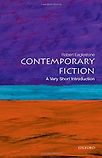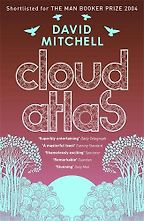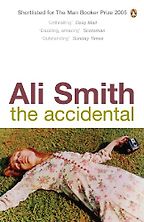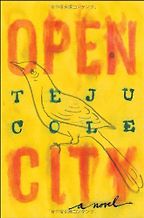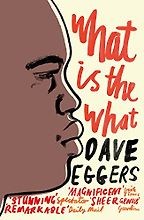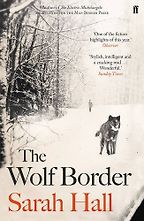What is contemporary fiction?
That is a question that is almost impossible to answer. It is very hard to say that contemporary fiction is about this or about that, or it is this shape or it does that, because like life, it covers anything and everything. But there is a long way to answer that question by means of a historical preamble.
Please oblige.
Since the novel emerged as a form, it has always been involved with realism. Realism is a series of conventions about representing the world.
You can think about it like this. You can consider whether a novel is like a window you look through to see the people beyond on the other side, or whether the novel is like a painting you just look at. Realism wants to suggest that there are real people on the other side. We could ‘fall into’ a novel: we meet Mr Darcy, or we meet characters from Dickens.
Novels have always been interested in realism. But at the same time, there has been a consistent counter-current to realism, all the time questioning it and investigating it, and sometimes making fun of it. All these different reactions to realism you can think about in terms of literary movements.
For example, early on in the history of the novel, there was a Gothic movement. Gothic novels were full of things that could never possibly happen: giants and ghosts and strange monks. These were produced at the same time as there were realist novels about people living their ordinary lives.
Then in the twentieth century, there was modernism. Writers like James Joyce and Virginia Woolf tried to be more real than real. For example, when we talk to people, our minds do flash back to the past or flash forward to the future: perhaps we are thinking what we will have for lunch. Modernist writers try to reflect that, and this makes their novels in some ways harder to read, more interior.
After modernism came postmodernism. Writers such as Salman Rushdie or Angela Carter again questioned realism, this time by using pastiche, retelling stories from different angles, and being self-referential. Postmodernism began to lose its energy in the 1990s.
So, is there a major literary movement that succeeds postmodernism? Well, the short answer is no. However, I think we can discern three different strands in contemporary writing.
You propose to identify three major trends in contemporary writing.
Exactly. The first trend is that of writers who use postmodern tricks, yet do so in way that is slightly less adventurous or experimental. This is sometimes called ‘post-postmodernism’. David Mitchell’s Cloud Atlas, which is one of the books that I have chosen, is a good example of this.
There has also been a return to modernism. Writers such as Ali Smith have produced difficult and beautiful novels that hark back to Virginia Woolf and to James Joyce in a very self-conscious manner.
The third trend, which extends beyond novels to the theatre, cinema and TV, is to create works that respond to ‘reality hunger’. In fiction, this is the attempt to write novels that are much more ‘real’.
That’s very useful to have a map of the terrain. How does David Mitchell’s Cloud Atlas exemplify ‘post-postmodernism’?
There’s a great novel by the Italian postmodernist Italo Calvino called If On a Winter’s Night a Traveller. In that novel, you get the beginning of a story, and then within that story, the characters find a diary, and you get the diary. In the diary, the protagonists find some letters, and then you get the letters. So you have lots of the first half of stories but no ending, no closure. It is funny and moving, but it is also quite frustrating.
David Mitchell has learned from Calvino in Cloud Atlas, which is a sort of science fiction novel that has been hugely successful. In this novel, you find stories that interlock like Russian dolls. But here, you also get the second half of all the stories, so your desire to hear the whole story is met.
That is an obvious example of a writer learning clever postmodern tricks, but domesticating them. The novel has a strong storyline, and offers a sense of closure. Post-postmodern writers are keen on restituting a sense of narrative.
Cloud Atlas seems to be very concerned with technology.
Yes, indeed, and with writing as a technology. When you are reading a Dickens novel, you try to ‘go through’ the writing to the actual events. You become so wrapped up in the novel that the writing somehow disappears.
But postmodernism and post-postmodernism are constantly drawing attention to the technology of writing itself. They constantly remind you that what you are reading is only a story.
One of the things that David Mitchell plays with is different technologies of writing. The story is told by means of a diary, pulp fiction, a film script, and a science fiction orison which is a sort of communication device from the far future. Then the middle story is a type of folktale told in an invented language. So the novel is very interested in the technologies of its own representation, and how they change over time.
You suggested that Ali Smith is a writer who harks back to modernism. Can you expand?
Of course. Ali Smith’s most celebrated novel so far is The Accidental. It is the story of a family that goes on holiday, implodes and then comes back together again.
The story is told in a variety of different ways. There is a narrator who is a very clever young girl. Then another narrator is a pretentious and depressed young man. The step-father is an English academic; his chapter is told in a type of pastiche poetry all the way through.
You get these different views of what’s going on, but they don’t add up to a full whole. There is a sense that things can’t be entirely pinned down or can’t be fully understood. This is very reminiscent of writers like Virginia Woolf.
Do you also detect a return to the work of James Joyce?
Yes, there are many Joycean elements in this novel. In particular, there are two passages that are made out of film titles taken from history of cinema that echo parts of Ulysses. These passages are strange and quite demanding, but also beautiful.
Teaching and writing about contemporary literature, are you ever tempted to ask writers about their influences?
To a certain extent. It is worth bearing in mind that even when writers are willing to discuss their work openly, what they say is rarely the case. Asking about influence is an exception, and is often illuminating. The writers they have liked, are excited by, try to imitate, or have grown out of, usually tells you a great deal about their work.
What are the important influences on Teju Cole’s Open City?
One of the most important influences is W G Sebald. Sebald was born in Germany, lived in Britain, and died in a car crash in 2001, just after the publication of his novel Austerlitz.
Sebald has had a huge, almost subterranean influence on literature. His first three or four books are hard to categorise. I think his best one is called The Rings Of Saturn, in which the narrator goes on a walking tour around East Anglia.
The walking tour results in him having a nervous breakdown. Everything he sees is connected to destruction. He sees a beautiful stately home, and it’s tied up with the bombing of the Second World War, and the failure of the sugar-beet crop. Or he sees a small-gauge railway, and he discovers that the train was originally built for the emperor of China, although it was never sent due to the Boxer Rebellion, in which tens of thousands of people were killed.
Sebald has influenced writers such as Robert MacFarlane, who intellectualises walking and experiencing in his environmental writing. Teju Cole’s novel is similarly less plot-driven and more world-driven.
Much of Open City is set in New York.
Yes, Cole’s narrator is a half-American, half-Nigerian man living in New York, although he travels extensively. You learn about the people he meets while travelling. For example, he meets an extremely well-educated Muslim migrant in a phone shop in Brussels, and they talk about left-wing politics. Simultaneously, you learn scraps about the narrator, as it were from his reflections in other people.
Many of the stories in this novel are about migrants, and the movement of people getting into America, or failing to get into America. Although I want to avoid spoilers, as the novel develops, you uncover something very unsettling about the narrating main character.
In the novel, migration is closely related to the theme of looking in the city, and of blindness.
Indeed, there are different levels of blindness. The most obvious blindness is that of the populations of New York or Brussels to migrants and the effects of migration. There is another sort of blindness, in which the narrator is escaping from something, and is blind to his own behaviours in all sorts of interesting ways.
Let’s move on to What is the What: The Autobiography of Valentino Achak Deng by Dave Eggers. How can Dave Eggers write an autobiography of someone else?
This sort of joke is typical for Eggers. His first book, A Heartbreaking Work of Staggering Genius, similarly plays with our expectations from the very first page, where you normally find publisher’s notes and information for classifying the book. This book switches from autobiography to fiction. He says that writing fiction was like imagining wearing a clown’s suit; initially he could not do it, but he learnt.
What is the What is a similarly strange mixture of a book. You might say it was ghostwritten by Dave Eggers, but his name is on the front cover as a writer. You might say that it is a novel that is true to life, but it is also an autobiography: Achak Deng is telling his story. When you read it alongside other of Dave Eggers’s books, you realise that although it is about Achak Deng, it is unmistakably by Dave Eggers, in its style and form.
The title alone is supposed to make you a bit anxious. What’s going on? How far can we trust this story about Achak Deng’s life in Sudan and as a migrant in America? What has been left out? So the title is a sort of a joke, but it is also a sort of a question.
There is a blurring between fact and fiction.
The American critic David Shields wrote a book called Reality Hunger, in which he diagnoses a relatively new hunger for reality that has appeared right the way across the arts. This hunger manifests itself in reality TV, and the ‘misery memoirs’ that were popular a few years ago.
But of course, Shields says that reality TV isn’t real. It gives the impression of being real but it is not real. He talks about different ways in which ‘the real’ is made to appear real.
Dave Eggers plays with the relationship between reality and fiction. What is the What might be thought of as containing ‘chunks of reality’. For example, there is a scene in the desert, in which a character who used to be a teacher gives a four page lecture on the history of Sudan.
Tell me about the structure of the novel.
The novel comprises two parts. In the first, the narrator Achak Deng recounts his experience of being robbed violently in his house in the US. He has constant flashbacks to his life in southern Sudan. So the violence of America is contrasted with the violence of Sudan.
In the second part, the robbery is over, and he has to go to work, despite being traumatised by being beaten up. He works three jobs. At the sports club he works in, his boss notices his black eye, but nobody else pays him any attention. He thinks that if only people knew his story, they wouldn’t treat him with such disregard. This second half is about how he is ignored in America, and how the world ignores Sudan.
All the proceeds from the novel go to an organisation set up by Dave Eggers and Achak Deng, which is designed to increase access to education in what is now South Sudan. Is this is a political novel?
Yes, it is. More generally, Dave Eggers is interested in novels that not only raise awareness about political issues, but also have real-world consequences. When I teach this novel, I put up a webpage of the non-profit organisation so that students can look at it. We talk about all the things that Eggers actually does. He is a publisher, and he runs various charities. He is very engaged. This constitutes one type of cross-over between fiction and reality.
Nevertheless, is contemporary fiction aware that there are limits to what it can achieve politically?
Postmodernism was animated by the sense that fiction was terribly important. Supposedly, fiction was shaping the world. If you only read a particular novel correctly, your whole version of the world would collapse: the world would change.
Since then, there has been a new humility in fiction. Whereas the novel was the preeminent art-form in the nineteenth century, it now competes with films, computer games and TV series. All of these forms have the power to shape the world through narrative. So the novel is no longer the king of the jungle. Novelists are not the unacknowledged legislators of the world.
Why did you choose Sarah Hall’s The Wolf Border?
I loved Sarah Hall’s previous novel How to Paint a Dead Man. This novel, which I think of as being inspired by modernism, contains three stories about art and death that interlink over different historical periods. The Wolf Border, which has only very recently been published, is every bit as enjoyable.
However, I also chose this novel to gesture to a broader aspect of contemporary fiction. I am currently halfway through this book, and so whatever I say about it is in some sense provisional. And this is true about contemporary literature more generally. Contemporary literature is exciting precisely because it is new and constantly changing, and what you say about it now may well not be true in five years’ time.
Five Books aims to keep its book recommendations and interviews up to date. If you are the interviewee and would like to update your choice of books (or even just what you say about them) please email us at [email protected]
Five Books interviews are expensive to produce. If you've enjoyed this interview, please support us by donating a small amount.

